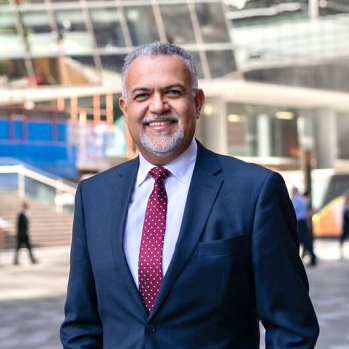This article was first published in the April 2024 issue of Construction Week Middle East.
The old saying “time is money” is particularly relevant in project management, where even minor delays can lead to substantial financial repercussions for all parties involved. Delays can escalate financing costs, hinder revenue generation, and increase overhead expenses, among other financial strains. Besides direct costs, a failure to meet project timelines can negatively impact revenue streams and, ultimately, the financial viability of the entire project.
My experience in Western Australia includes large mining and gas projects, where every day spent in delay can cost millions of dollars. For instance, a one-day delay in a mining project could prevent the client from exporting millions of dollars worth of iron ore. Similarly, contractors incur costs too. In offshore gas projects, the daily rental rate for offshore vessels could be around a million dollars. As a result, delays must be viewed not only in terms of time but also as an expenditure.
How common are delays?
According to research, at least 60% of construction projects worldwide experience delays — and that number is probably even higher. Besides extending the timeline, delays also increase costs, decrease productivity, compromise quality, and even compromise safety on construction sites. These issues can damage reputations, leave clients dissatisfied, and ultimately cause a loss of earnings.
Effective communication is key to managing changes and unforeseen circumstances — whether internally between the client’s project team and the contractor’s project team or externally between the contractor and the client.
Causes of delays
Some delays are due to unforeseen circumstances beyond the control of the parties involved in the project—such as natural disasters like floods or earthquakes, that could not have been anticipated and prepared for. Other times, changes in laws or regulations impact the project, or delays are caused by late payments or changes to the project scope.
One of the most common causes of delay I see is incomplete design. It often starts with clients being so passionate about their projects that they initiate them without a complete design, which can lead to considerable expenses down the line. Incomplete designs also create an unclear scope of work, complicating accurate estimates and quotes for contractors. This often
results in provisional contract sums, acting as placeholders for costs determinable only after design completion. As designs evolve, these sums can escalate, causing budget overruns.
Poor project planning, characterised by a lack of preparation and understanding of the construction process, often arises from unclear goals, inaccurate cost estimates, and poor scope control. This lack of planning can result in scope creep, exceeding the initial plan without adjusting time and budget, leading to disputes, rework, and potential project failure.
Resource planning challenges in the Middle East, where resources are often imported, expose projects to delays and cost increases. Global market fluctuations, transportation hurdles, and customs issues, compounded by reliance on materials from high-inflation areas like Asia and Europe, can cause delays. These are exacerbated by material unavailability or contractors’ inability to absorb financial losses.
Inadequate resource allocation can also lead to delays. In the construction industry, resources are often shared among different disciplines and projects. To ensure successful project completion, these shared resources must be allocated carefully, aligned with the project’s open work front and agreed upon schedule.
Classification of delays
Understanding delays is the first step towards developing effective communication strategies.
Generally, delays can be divided into three categories:
1. Critical and non-critical delays
The Society of Construction Law (SCL) protocol distinguishes between critical and non-critical delays as “delay to completion” and “delay to progress”. Delays to the contract completion date are known as critical delays. A Critical Path Method (CPM) technique or schedule is generally used to identify critical and non-critical delays. On the other hand, non-critical delays only delay the contractor’s progress without causing the contract completion date to be missed. However, delay to progress may still be compensable via other delay or disruption costs, even if it does not lead to a time extension or time extension costs.
2. Excusable and non-excusable delays
These types of delays are initially categorised by whether or not a time extension or other form of relief will be given to the contractor as a result of the delay. A delay is generally excusable
when it is caused by an unforeseeable event or something that is beyond the contractor’s control. A non-excusable delay is one caused by an event within the contractor’s control, or by a
foreseeable event. The specific contract for the project outlines the instances of excusable and compensable delays.
3. Compensable and non-compensable delays
If an excusable delay is compensable, the contractor is entitled to additional monetary compensation. Conditions of contracts generally distinguish between compensable and non-compensable delays, as well as how compensation is to be determined.
Effective communication
For construction project management to be effective, and delays mitigated, roles and responsibilities must be clearly defined. This ensures that every team member knows their specific duties and what is expected of them, preventing misunderstandings and delays.
Establishing consistent and clear communication channels, such as regular meetings and updates, is especially important. This facilitates timely and transparent information sharing among all stakeholders, helping ensure fast decision-making and problem resolution.
Stakeholder engagement, cultural awareness, and facilitating collaboration are also important. Building trust, aligning incentives, maintaining open dialogue, and conflict resolution are key components of an effective communication strategy. Understanding cultural nuances unique to specific regions is also essential. In the Middle East, this might include considering the importance of building relationships before entering into contractual deals, the influence of hierarchy within business contexts, and a preference for indirect communication styles.
I advocate for negotiation, and mediation via the practice of active listening as a means for resolving conflicts. By employing these problems solving techniques, it’s possible to achieve mutually beneficial outcomes. However, it is imperative to maintain neutrality and objectivity, as this is what enables both sides to address issues in a constructive manner, ensuring that solutions are fair and balanced.
Tools for communication
Some great collaborative tools, such as project management software, can help improve communication and information sharing between team members, enhancing collaboration and information exchange.
These tools provide a centralised platform for information sharing, task assignments, and progress tracking, ensuring everyone is on the same page. Teams can access project data in real time from anywhere, which helps with collaboration and reduces the chances of miscommunication and delays.
Summing up
Construction delays are a common challenge, but creating an environment that fosters open communication can help manage them effectively. As Nat Turner said, “Good communication is the link between confusion and clarity.” Being honest and realistic about delays while remaining flexible to changes is crucial. Effective communication ensures that all stakeholders are informed about delays, their impact on the project, and any solutions, fostering collaboration and easing the decision-making process.
About George Matta
 George is a recognised testifying expert in the analysis of delays, acceleration and disruption claims. He has 30-years’ experience embracing several iconic projects including power stations, airports, water, health, education, railways, tunnels, roads and bridges, oil and gas, mining and residential projects across the Middle East, Asia and Australia. George has also been appointed by both disputing parties as the Expert in an Expert Determination process.
George is a recognised testifying expert in the analysis of delays, acceleration and disruption claims. He has 30-years’ experience embracing several iconic projects including power stations, airports, water, health, education, railways, tunnels, roads and bridges, oil and gas, mining and residential projects across the Middle East, Asia and Australia. George has also been appointed by both disputing parties as the Expert in an Expert Determination process.
For more information on TBH’s Claims and Dispute Resolution services, click here.


